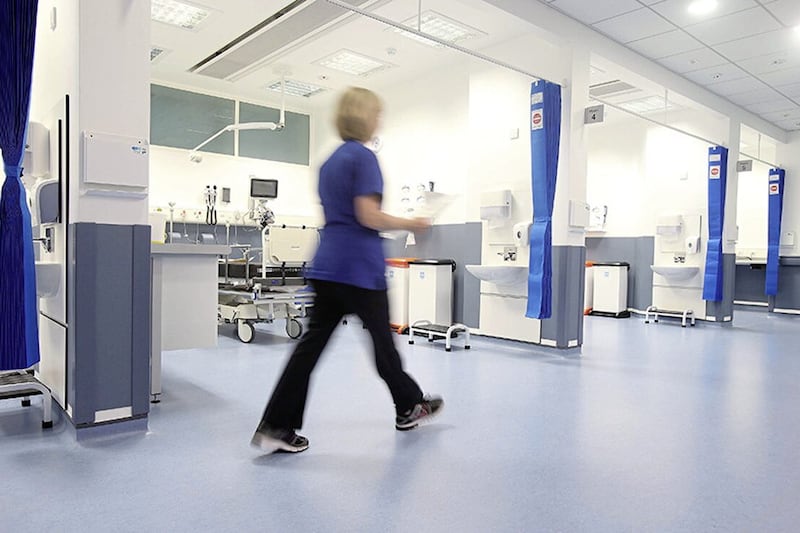The past few weeks have seen a swathe of economic insights arrive.
Hot on the heels of an article based primarily on the initial findings of the Fiscal Council that considered we’ve never had it so good, data from the Office for National Statistics arrived to reveal that Northern Ireland’s economy has largely recovered from the impact of the pandemic and performed better than every other UK region.
This story was pounced on as evidence that the protocol was delivering a ‘best of both worlds’ scenario. There is something in that assessment surely, but I’m a little more cautious in cheerleading for the protocol as the reason for our relatively better performance.
Before the pandemic, towards the end of 2019, the narrative was of an economy that was running out of steam, so these latest figures could have us recovering to a level that was already softer than the rest of the UK.
In addition, while we often bemoan the size of our public sector, and crave a more dynamic, private sector driven economy, the size of our public sector does act as a significant buffer from the worst of economic downturns.
Don’t forget, there are significant elements of the private sector here that rely on providing services to the public sector.
While I am cautious in suggesting that our recent relatively strong growth is protocol related, two recent inward investment announcements do highlight the lure of dual market access.
Firstly, Almac announced plans to create more than 1,000 jobs over the next three years, and secondly, one of the world’s biggest packaging companies, drinks can manufacturer Ardagh Metal Packaging, is set to invest £150 million in a first-time investment in Northern Ireland.
In both announcements, access to both the EU and UK markets was cited as an element in the decision.
That said, the idea that the protocol is the best of both worlds is perhaps more accurately described as the best of a bad lot.
New research from the University of Strathclyde has modelled the impact of the protocol and finds that it could leave the economy 2.6 per cent smaller than it would have been if there was no Brexit. Wages would be 3.9 per cent lower.
In their most optimistic scenario, where checks between NI and GB are reduced, the economy would still be 1.5 per cent smaller than if the UK had remained in the EU.
Far from considering if we’ve ever had it so good, researchers from QUB have just added a new analysis to the age-old question on why Northern Ireland’s productivity is consistently so much lower than our neighbours.
The review says there is no single explanation but that "the evidence presented for the role of skills in Northern Ireland's productivity problem is strong.”
Apparently, our workforce is weak in both basic skills and our share of higher skills.
Further, management skills also lag behind best practice and that may worsen the impact of our lower general skills base.
I am reminded of research I undertook on behalf of the Institute of Directors several years ago, that sought to understand the impact of management training on company performance.
A significant proportion of managers are ‘accidental managers’ who have excelled in their chosen area of expertise and find themselves elevated to running business units and teams, often without any formal management guidance.
Taking part in formal leadership and management training can make a big difference to these people. In fact, my survey of leadership training participants at the time, found strong agreement that the training improved personal, team and company performance.
Well over half of respondents agreed that company productivity had increased.
Returning to the Fiscal Council paper that prompted the headline that we’ve never had it so good, this is a much needed welcome addition to the assessment of Northern Ireland’s economy.
In their first publication, the Fiscal Council provide as comprehensive a guide to our public finances as I’ve seen.
In it, they identify that just over £30 billion of public money is spent here per annum. Approximately £20bn is raised through taxes and fees, leaving a notional deficit of £10bn.
£600m of annual public spending here involves benefits that are unique to Northern Ireland — the absence of domestic water charges (yes, I know we pay for water through our rates), industrial rates relief, more generous welfare payments, lower university fees, free travel passes, free prescription charges, etc, all contribute to a better standard of living apparently.
Maybe for a proportion of us, but I think it is more appropriate to focus on addressing all the issues that are holding our economy back.
For example, and particularly pertinent at this time of year, is the scale of child poverty.
Analysis by the End Child Poverty coalition says that one in four children live in poverty here. Add to this that there are over 40,000 people waiting for houses, and it feels difficult to reconcile an idea that we’ve never had it so good with the reality for so many people.
Andrew Webb is chief economist at Grant Thornton Ireland









